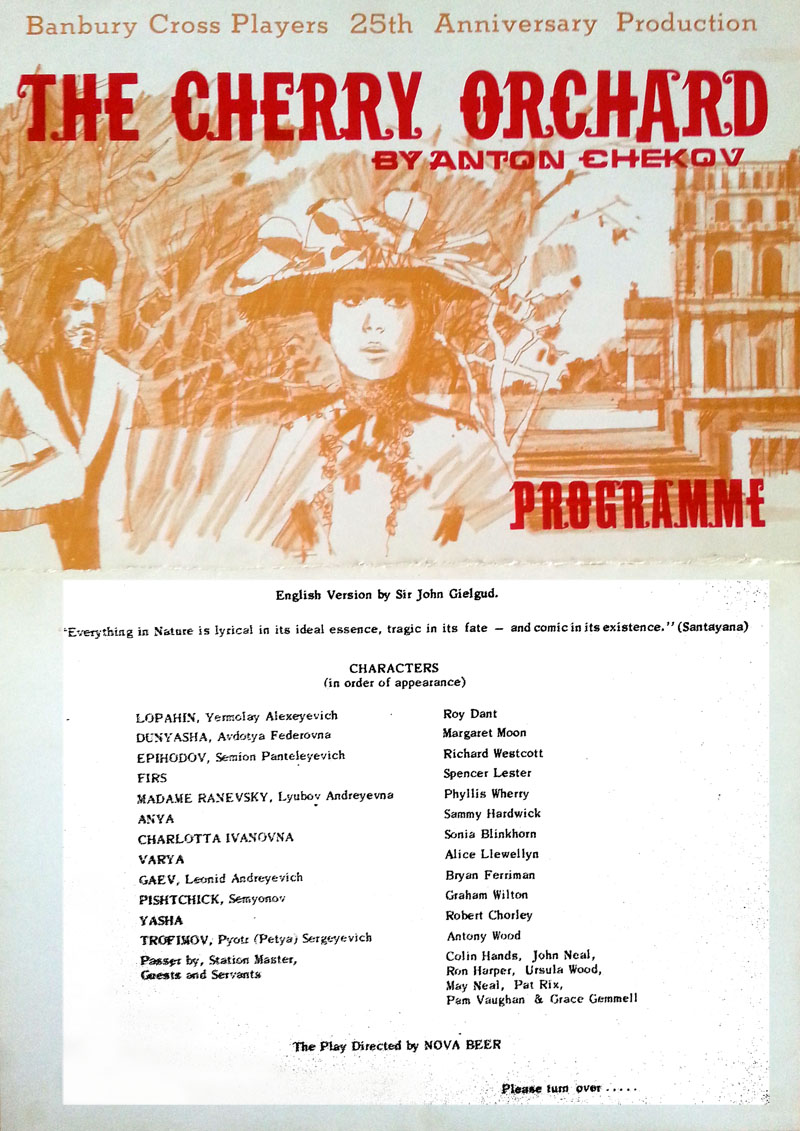

They knew the recipe in those days." Ranyevskaya: "Oh, my childhood, my innocence! The orchard was just the same then, nothing has changed." Ranyevskaya: "Look - there's Mama, our dead Mama, walking through the orchard. She escaped - fled without so much as a backward glance." Gayev: "Now I'm fifty-one already, strange as it seems." Firs: "There was money then! The dried cherries were soft and juicy and sweet and scented. I slept in here when I was a little girl." Anya: "Mama couldn't bear it. I'm a pig." Varya: (to Ranyevskaya) "First you play billiards and break the cue, and now you parade about the drawing-room as if you were a guest." Ranyevskaya: "The nursery. I write such a foul hand I'm ashamed for people to see it. I've turned into someone all refined, someone terribly delicate and ladylike - I'm frightened of everything." Yasha: "If there's one thing I hate more than anything else, it's a girl who doesn't know how to behave herself." Lopakhin: "I've never learnt anything. You have to know your peasant!" Varya: "Only then I hear they've been spreading a rumour to the effect that I've had them fed on nothing but dried peas." Dunyasha: "Look at my hands - white as white, like a lady's. Varya: "Shameless, aren't you?" Gayev: "It's no accident that your ordinary peasant loves me. She's been sitting in the servant's hall since yesterday waiting to see you". Lopakhin: "Like a pig in a pastry's cook." Lopakhin: "Very tender plant, aren't you, Dunyasha? Dress like a lady, do your hair like one, too." Gayev: "(To Yasha) Do go away, my dear good chap - you smell of chickens." Varya: "(To Yasha) Your mother has come home from the village. Ranyevskaya and Gayev fail to take action to save the estate, and in their nostalgic good-bye to the house, they fail to secure a safe place for their most loyal servant, Firs - selfishness and irresponsibility to make those amendments to carry on with the present. The end establishes the viewpoints of the characters towards the loss of their estate. Essentially, everything about the past has been diminished due to Firs' symbolic nature of the aristocratic past. The "breaking string" sound is heard, which is an ominous feature that resembles that of the discontinuation of memory. The Ending The play ends with Firs dying as the cherry orchard is being cut down - the family of the estate had decided to depart without him.

Ultimately, it will weigh in on the orchard's future, defining how they view the past. The orchard is a central theme itself the fate of the orchard depends on how each character responds to it. The Title "The Cherry Orchard" centralizes the plot of the play - will the orchard be saved? Chekhov creates this suspense through his otherwise leisurely plotting and realist manner in writing - highlighting the mundane nature of the characters' poor/wealthy lives.


 0 kommentar(er)
0 kommentar(er)
